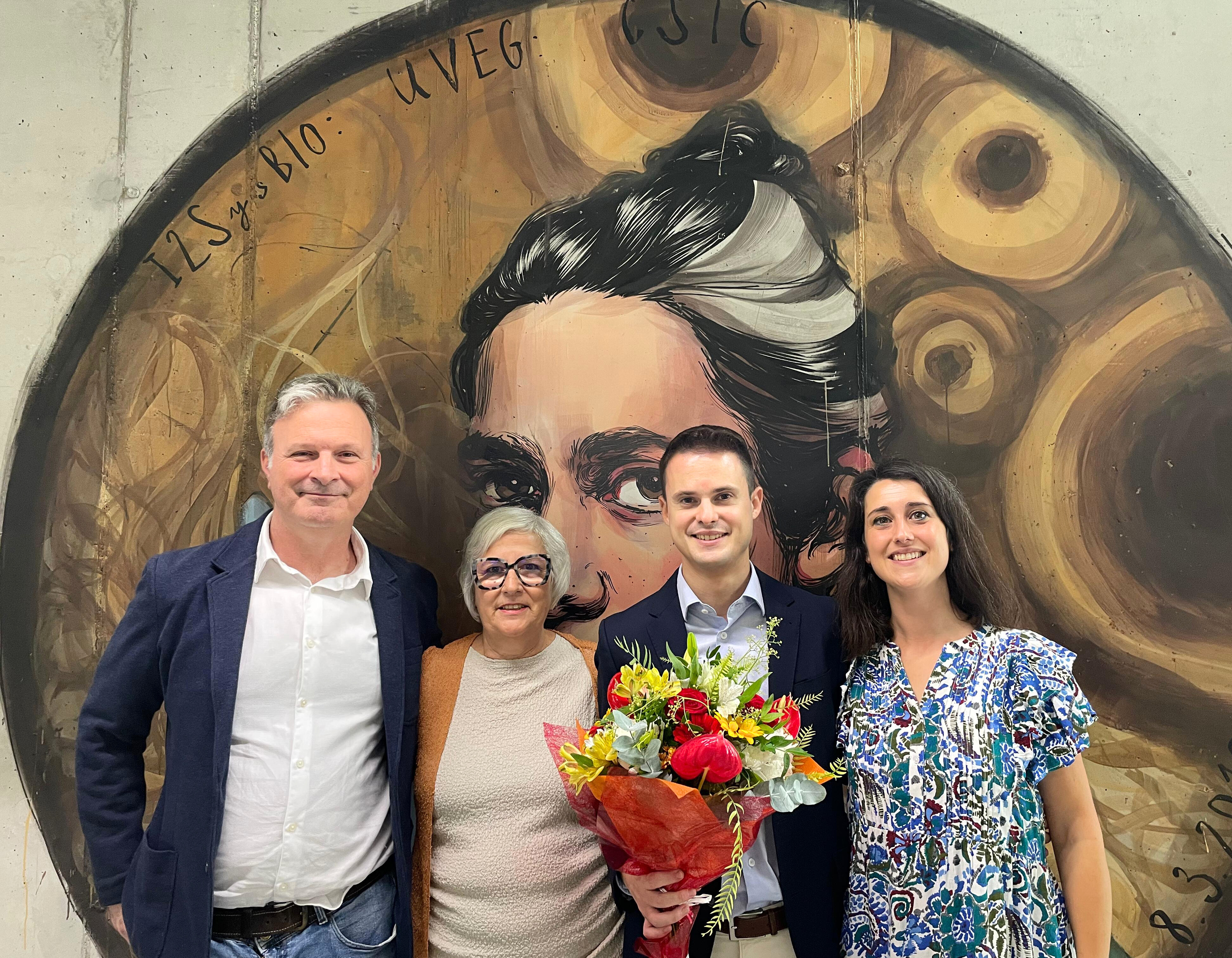Users
Social media
- More details here...
- Address
Parc Científic de la Universitat de València C/
Catedrático Agustín Escardino, 9
46980 Paterna (Valencia) Spain - Email:
iu.i2sysbio@uv.es - Phone:
(+34) 963544810
- Address
Links
Víctor Garrigós defends his thesis on improving the performance of wine yeasts under industrial conditions

Investigation
Víctor Garrigós defends his thesis on improving the performance of wine yeasts under industrial conditions
This thesis, supervised by Agustín Aranda, Emilia Matallana and Cecilia Picazo, studies how to regulate the metabolism of Saccharomyces cerevisiae to improve its oenological performance under industrial stress conditions. Some of the research results have been published in the Journal of Agricultural and Food Chemistry, Microorganisms, Microbial Biotechnology, Journal of Biotechnology and Microbial Cell Factories. In addition, the thesis resulted in an international patent, currently licensed by Danstar Ferment AG, a subsidiary of the multinational Lallemand Inc. The thesis was defended on 2 October 2025.
The wine industry faces challenges such as climate change, demand for wines with lower alcohol content and the need for more sustainable processes. To address these challenges, this doctoral thesis, entitled “Impact of metabolism regulation by nutrients and redox state on the technological performance of wine yeasts”, investigates how to improve the performance of Saccharomyces cerevisiae, the main yeast in wine fermentation, under industrial stress conditions.
The work focuses on two key aspects: the role of cytosolic peroxiredoxin (Tsa1) as a metabolic regulator, and the function of the retrograde regulation pathway (RTG) during fermentation. The results show that Tsa1, in addition to its antioxidant function, participates in the regulation of the metabolism of trehalose—a protective sugar—and acetic acid. It was also found that RTG activation can reduce the production of ethanol and acetic acid and increase glycerol, which could favour oenological profiles that are more suited to the current challenges facing the sector. ‘Yeasts are exceptional organisms with multiple applications, and we have the capacity and knowledge to continue improving them,’ says Víctor Garrigós.
In addition, the doctoral student developed an adaptive evolution method in the laboratory capable of activating RTG without requiring artificial genetic modifications. This approach made it possible to obtain wine strains of S. cerevisiae with desirable oenological characteristics that are directly transferable to the market. The technology has been protected and licensed, and some of the strains are in the industrial validation phase prior to commercialisation.
Víctor Garrigós carried out his doctoral research in the Industrial Yeast Biotechnology group, under the supervision of Agustín Aranda, scientific collaborator at the CSIC in the Institute of Integrative Systems Biology (I2SysBio, CSIC-UV), Emilia Matallana, Professor in the Department of Biochemistry and Molecular Biology at the UV and researcher at I2SysBio, and Cecilia Picazo, postdoctoral researcher at I2SysBio. During his research, he enjoyed a Predoctoral Atracció de Talent contract from the University of Valencia. He also spent time with the Molecular Cell Biology group, led by Dr Jennifer C. Ewald at the University of Tübingen (Germany). The panel was made up of Daniel Ramón Vidal (Cardenal Herrera CEU University), Elena Garre García (University of Gothenburg) and Estéfani García Ríos (Institute of Agrochemistry and Food Technology IATA, CSIC), who graded the thesis as outstanding.


